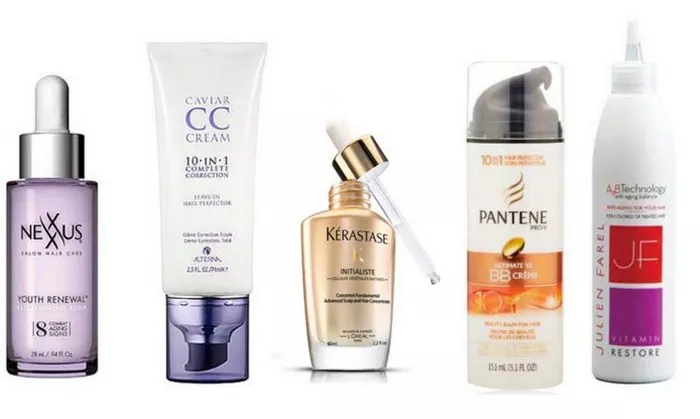A luscious mane with radiant shine is a dream for many. However, daily exposure to environmental stressors, heat styling, and chemical treatments can leave our hair dry, damaged, and lackluster. This is where hair hydration treatments come to the rescue. In this article, we delve into the world of hair hydration treatments, understanding their significance, benefits, and the various techniques employed to restore vitality and moisture to our tresses.
Understanding Hair Hydration
Hair hydration refers to the process of replenishing and retaining moisture in the hair strands. When our hair lacks adequate moisture, it becomes dry, brittle, and prone to breakage, leading to dull and lifeless locks. Hair hydration treatments aim to restore the hair’s natural moisture balance, promoting softness, shine, and manageability.
The Importance of Hydration for Hair Health
Hydration is essential for maintaining the health and appearance of our hair. Properly hydrated hair is less prone to damage, split ends, and frizz, making it easier to style and manage. Hydrated hair also retains its color vibrancy and resilience against environmental stressors, UV rays, and heat styling.
What are the signs of dehydrated hair?
Dehydrated hair can exhibit several signs that indicate it lacks adequate moisture and needs hydration. Some common signs of dehydrated hair include:
1. Dry Texture:
Dehydrated hair often feels rough, dry, and coarse to the touch.
2. Lack of Shine:
Hair that lacks moisture may appear dull and lackluster, lacking its natural shine and vibrancy.
3. Frizz:
Dehydrated hair is more prone to frizz and flyaways, making it difficult to manage and style.
4. Tangles and Knots:
A lack of moisture can cause hair to become more tangled and prone to knots, leading to potential breakage during detangling.
5. Split Ends:
Dehydrated hair is more susceptible to split ends, where the hair shaft splits into two or more sections.
6. Brittle and Weak:
Dehydrated hair may feel brittle and weak, breaking easily even with minimal manipulation.
If you notice one or more of these signs in your hair, it may be an indication that your hair is dehydrated and in need of hydration and moisture. Incorporating hair hydration treatments and using hydrating hair care products can help restore your hair’s health and vitality.
How to Moisturize Hair?
Various hair hydration techniques are available, tailored to different hair types and concerns:
1. Deep Conditioning:
Deep conditioning treatments use rich, nourishing ingredients to penetrate the hair shaft, providing intensive hydration and restoring moisture balance.
2. Hair Masks:
Hair masks are infused with hydrating ingredients and are applied to the hair for a specified time to provide deep nourishment and moisture.
3. Hydrating Shampoos and Conditioners:
These products are formulated with ingredients that hydrate and moisturize the hair during regular cleansing and conditioning routines.
4. Oil Treatments:
Natural oils, such as coconut oil and argan oil, are applied to the hair as pre-shampoo treatments, sealing in moisture and preventing water loss.
Benefits of Hair Hydration Treatments
Hair hydration treatments offer a plethora of benefits, making them a staple in hair care routines:
1. Restores Moisture Balance:
Hydration treatments infuse the hair with essential moisture, improving its texture and appearance.
2. Enhances Shine and Luster:
Hydrated hair reflects light better, giving it a natural shine and luster.
3. Improves Elasticity:
Well-hydrated hair is more elastic, reducing the risk of breakage and split ends.
4. Eases Detangling:
Hydrated hair is more manageable and easier to detangle, minimizing hair damage during styling.
5. Preserves Hair Color:
Hydration treatments can help preserve the vibrancy of colored hair, preventing fading.
Tips for Maintaining Hydrated Hair
To maintain the benefits of a hair hydration treatment, consider the following tips:
1. Regular Trims:
Trimming the hair regularly removes dry, damaged ends, preventing further dehydration.
2. Limit Heat Styling:
Reduce heat styling to minimize moisture loss and damage to the hair.
3. Protect from UV Rays:
Use hair products with UV protection to shield hair from harmful sun rays.
4. Use Silk or Satin Pillowcases:
Sleeping on silk or satin pillowcases reduces friction, preventing hair breakage and moisture loss.
Conclusion
In conclusion, hair hydration treatments play a pivotal role in maintaining healthy, vibrant, and lustrous locks. Whether done professionally at a salon or as part of an at-home routine, these treatments offer a range of benefits, from restoring moisture balance to enhancing shine and manageability. Recognizing the signs of dehydrated hair and adopting a hair care routine that emphasizes hydration can lead to hair that is resilient, radiant, and ready to dazzle. Embrace the power of hair hydration treatments and unlock the secret to nourished, beautiful tresses.


